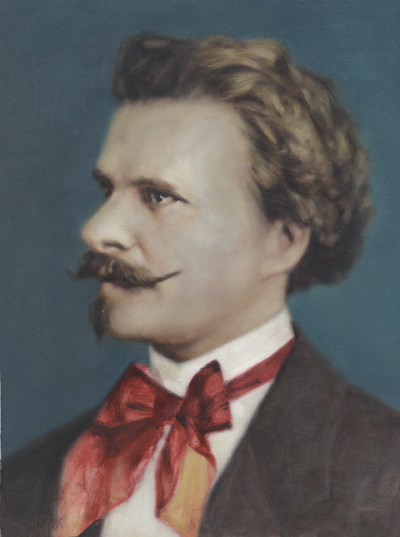
Bio
Eduard Strauss (1835 - 1916), the third son of Johann Strauss the elder, originally intended for the Austrian consular service, was recruited by his eldest brother into the family music business, to which he contributed until his retirement in 1901. As a composer he was very much less prolific than his brothers and than his father. Eduard was adept in languages and anticipated a career in the Austrian consular service, but family pressure pushed him toward a music career. He studied theory, violin, piano, and harp. His debut in 1855 came as a harpist in one of his brother. Johann's waltzes. Stage fright brought a premature end to his career as an orchestral harpist, yet he was not too timid to play with and conduct his family's dance orchestras; indeed, he developed a reputation as a martinet on the podium.
Eduard began conducting the main Strauss orchestra in early 1861, and was an immediate success. The following year he was applauded in the Viennese press for his agility and confidence. Yet his performances in 1865 seemed to misfire, and he began to squabble with his brothers over business matters to such an extent that he almost withdrew from music entirely. Even so, he took control of the Strauss orchestra upon brother Josef's death in 1870. That had been the year Josef and Eduard organized a series of concerts in the newly opened Goldene Saal of Vienna's Musikverein, a controversial move for a venue dedicated to art music. Yet the Strauss family's dance pieces attracted huge audiences, and concerts eventually included more serious contemporary works.
Eduard wrote his best music during the 1870s and 1880s, yet it rarely sold well, much to Johann's secret satisfaction (the unpopularity of Eduard's music meant he had to play more of Johann's works). It was as conductor of the Strauss orchestra that Eduard enjoyed his only real success, touring across two continents (the second being North America) and performing in 840 towns over the years. In 1901, after a three-month tour of the United States, he disbanded the orchestra in New York and retired from public life.
Although he was devoted enough to his family's legacy to publish a detailed catalog of the Strauss archive in 1901, Eduard was sufficiently embittered to burn that archive in 1907, earning him the eternal enmity of Strauss aficionados.
 Contact
Contact Basket
Basket My favorites
My favorites My account
My account






